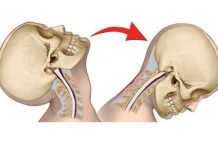Paul S. Nolet, Pierre Côté, J. David Cassidy and Linda J. Carroll
Centre of Research Expertise in Improved Disability Outcomes (CREIDO),
University Health Network Rehabilitation Solutions,
Toronto Western Hospital,
Toronto, Canada
Paul S. Nolet,
86 Dawson Road, Unit 3,
Guelph, ON N1H 1A8, Canada
pnolet@rogers.com
pnolet@uhnresearch.ca
The objective of this population-based cohort study was to investigate the association between a lifetime history of neck injury from a motor vehicle collision and the development of troublesome neck pain. The current evidence suggests that individuals with a history of neck injury in a traffic collision are more likely to experience future neck pain. However, these results may suffer from residual confounding. Therefore, there is a need to test this association in a large population-based cohort with adequate control of known confounders.
We formed a cohort of 919 randomly sampled Saskatchewan adults with no or mild neck pain in September 1995. At baseline, participants were asked if they ever injured their neck in a motor vehicle collision. Six and twelve months later, we asked about the presence of troublesome neck pain (grade II–IV) on the chronic pain grade questionnaire. Multivariable Cox regression was used to estimate the association between a lifetime history of neck injury in a motor vehicle collision and the onset of troublesome neck pain while controlling for known confounders.
The follow-up rate was 73.5% (676/919) at 6 months and 63.1% (580/919) at 1 year. We found a positive association between a history of neck injury in a motor vehicle collision and the onset of troublesome neck pain after controlling for bodily pain and body mass index (adjusted HRR = 2.14; 95% CI 1.12–4.10).
Our analysis suggests that a history of neck injury in a motor vehicle collision is a risk factor for developing future troublesome neck pain. The consequences of a neck injury in a motor vehicle collision can have long lasting effects and predispose individuals to experience recurrent episodes of neck pain.







